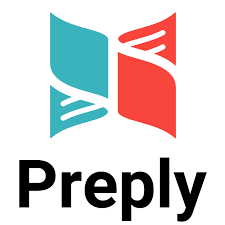The steadfast old reliable way of earning money whilst traveling has been to teach English in an international school. Travelers typically sign a contract with a school for a few months or a year and teach the local kids English. At the same time, they save money and becoming immersed in the local culture. With the recent explosion of affordable internet access, a new field of online education has opened. With remote places becoming connected to the English-speaking world, students can now have a lesson with an online language tutor from the comfort of their living room.
Teaching English online (or any language) is rapidly becoming the chosen way for students to learn. It is affordable, quick to arrange, and flexible to suit any schedule. It has also become an excellent way for travelers and digital nomads looking for location-independent jobs to earn money. There are now so many different platforms and different ways to teach that jobs for online language tutors can appear to be complex and unfathomable. All these different methods fall into three main categories.
- Contracted to an online international school
- Teaching via a freelance platform
- Real freelancing
Table of contents: ()

Contracted to teach with an online international school
This is the path most people follow when they start teaching online. It’s the cash cow that most people have heard of before they start to investigate the world of location independent jobs. Stories of earning $3,500 per month whilst sunning yourself in a hammock on a beach in Bali or Thailand often drive people to search Google to find out how this is achievable.
When you sign up for teaching at an online international school, you are signing a contract like working for any other school. You are expected to work for a minimum number of hours each month, teach the set curriculum they provide to the students they have already eagerly waiting for their next teacher. They provide the teaching materials, lesson plans, normally some type of teaching platform or virtual classroom in return for a set hourly rate and possibly a bonus system. You will be predominantly teaching Chinese kids and teenagers. There are some schools for adults. You will be normally teaching one to one or small groups of three to six.
They need to guarantee to the customers the quality of the lesson. Many have a minimum technical specification for your set up. Many insist on a hardwired (not Wi-Fi) internet connection with stable speeds of 20 Mbps up and down as a minimum. They also normally have a minimum spec for the computer of 4GB ram running Windows 7 or above. You will also need a decent set of headphones with a built-in microphone and of course an HD webcam (most laptops have one built-in now).
Most have a penalty for missing lessons or not performing adequately.
Examples:
VIPKIDS
- Book Your Accommodation HERE
- Buy Travel Insurance
- Search for Great Tours HERE
- Get a Car Rental
 VIPKIDS are probably the best-known online school in the world. Over 100,000 teachers teach over 5,000,000 classes a month to more than 700,000 Chinese students. They pay $7 to $9 per 25-minute class plus a few little incentives. It all works out to around $22 per hour. You set your hours and sign a six-month contract. You must have a bachelor’s degree and a TEFL certificate. They do employ any nationality as long as you are a native English speaker. The application process includes an interview and a demo class.
VIPKIDS are probably the best-known online school in the world. Over 100,000 teachers teach over 5,000,000 classes a month to more than 700,000 Chinese students. They pay $7 to $9 per 25-minute class plus a few little incentives. It all works out to around $22 per hour. You set your hours and sign a six-month contract. You must have a bachelor’s degree and a TEFL certificate. They do employ any nationality as long as you are a native English speaker. The application process includes an interview and a demo class.
DADA ABC

PalFish
PalFish is a little different, it is a phone or tablet-based app that lets you chat with Chinese kids and adults to earn money. There are two sides to the app, one is for teaching kids, the other for teaching adults.

The adults’ side of the app is called “Freetalk” and is a marketplace app where you make a profile, set your rates and students find you and {hopefully} book you. The number of bookings depends on how good you are at writing a decent profile that will sell your skills. You do need a TEFL certificate but do not need a degree. There are no minimum hours. The students pay your chosen hourly rate for every minute they are connected talking to you. PalFish takes 20% of your earnings as commission. The application process is very fast and is done through the phone or tablet app. PalFish boasts one of the highest returns for your work with earnings quoted between $15 and $30 per hour.
Teaching on a freelancing platform
Working for an online international school is effectively working a zero-hour contract for an employer who has full control over what you teach and to who. They set the hourly rate you get and supply the students. It’s a little like working in a real school but with tiny class sizes and no commuting time. If you are wanting a little more control and freedom of your curriculum and choice of students, then teaching on a freelancing platform may be right up your street!
With the freelancing platform, you list your skills, qualification, experience, and passions in a profile that is listed on an online marketplace. Students then pick a teacher and book lessons. You have complete control of what, when, and how you teach. You also have complete control over your hours and the rate you charge.
Of course, if you charge too much as a newly listed teacher, you may find initial bookings are few and far between. You also need a library of teaching materials to supply to your students. To command the higher hourly rates, you also need a proven track record in a niche market such as IELTS training, business English or accent correction. Otherwise, you disappear into the massive ocean of general English teachers stuck in the $10 to $15 per hour rut. Focusing on one or two specialties is the key to success.
Examples:
Preply

Once your Preply online tutoring jobs profile is approved, you set your availability on the calendar and wait for students to contact to arrange lessons. The lessons are taught either via Skype of Preplys own virtual classroom which is just like Skype. Preply charges the teacher a serious amount of commission for connecting teachers to students. Preply charges the tutor 100% of the first lesson with every student as a finder’s fee. It then charges 33% for each lesson. This does, however, drop to a minimum of 18% depending on how many lessons you teach. There is a minimum price of $5 and a maximum price of $40 for lessons. According to the Preply website, teachers earn an average of $550 per week.
Cambly

Cambly is easy for students to use. As soon as they have created a profile and added a little credit they can begin talking to a tutor. Cambly also continuously runs promotions where they give new students free minutes for a trial lesson. The tutor still gets paid for the minutes the student gets free. To help teachers build their feedback score and gain experience, Cambly gives the new students with free minutes to the new teachers. As a new teacher, you may receive lots of short calls from new students who are using the few free minutes given to them in the promotion.
True freelancing
As a true freelancer, you have complete control over what you do, when you do it and how much you charge. There are no commission, platform charges, or restrictions. You can do whatever you want when you want. You also must find students. Students are hard to find. The number of real freelance teachers is unknown, but the number is significant, and the competition is fierce. Most freelance teachers have their own website, YouTube channel, and blog and make use of social media to market themselves and their services. They often offer a variety of services as well as teaching such as translation, proofreading, and copywriting. Many also teach locally face to face.
To advertise your skills effectively, you need skills in online marketing, website optimization, filming and editing videos, writing blog posts, and promoting your blog, website, and YouTube channel. All these media platforms are also an ideal place to sell other products such as eBooks, Udemy courses, and other affiliate sales. You are suddenly running a multitude of profiles on various social media sites and that takes time and effort. This is time that you are not earning an hourly rate from – it is unchargeable time. It is time you could be using your teaching skills and earning dollars (the standard online teaching currency). On the other hand, there is no one dictating the maximum rate per hour you can charge. If you are teaching in a focused niche and are an expert in that niche, then you can make a lot of money. Check out IELTS Liz as a great example. Look at her site and try to see how she makes money. She is very clever in her approach.
As with any profession, to be successful as an online language tutor you need to be dedicated. It takes time and effort. It is relatively easy to start making a few extra dollars each week but to make a good living and earn a decent hourly rate, you need to approach the job like a professional. Gone are the days (if they ever existed) of sitting in a hammock, wearing a ragged Beerlao sleeveless t-shirt and board shorts drinking a coconut-based rum cocktail and chatting your way through an online lesson. Other people have come along and took the gig to a whole new level. They have taken it seriously (they even teach grammar – shudder)!
Whatever your modus operandi, you will only succeed is you adopt a professional attitude. You need to look at the business, check out the profiles of the top earners on Preply for example. Check out, successful freelancers. If you want to earn the higher hourly rates then you need to look smart, have expert knowledge in one or two niche markets, and have a proven track record of delivering quality lessons and results. Otherwise, you will disappear into the ocean of $10 per hour mediocre teachers.
Choices
All three different categories of online language tutor have their pros and cons. For maximum quick earnings then apply to teach at an international school, you could be earning dollars tomorrow. If you have time to build a loyal student following and have a niche specialty then the freelance platform like Preply is your ideal starting point. It also has the possibility of paying higher hourly rates. If you are super experienced and confident, have other skills in online marketing and social media then being a true freelancer could be for you.
Leave a Reply
Tags: article, digital nomad, language, location independent jobs


 Amateur Traveler Used to Teach English
Amateur Traveler Used to Teach English Free eBook – “How to Save Money Booking Your Travel Online”
Free eBook – “How to Save Money Booking Your Travel Online” Learn a Foreign Language, Parle Vous? – Episode 7
Learn a Foreign Language, Parle Vous? – Episode 7 Named “Best Independent Travel Journalist” by Travel+Leisure Magazine
Named “Best Independent Travel Journalist” by Travel+Leisure Magazine
